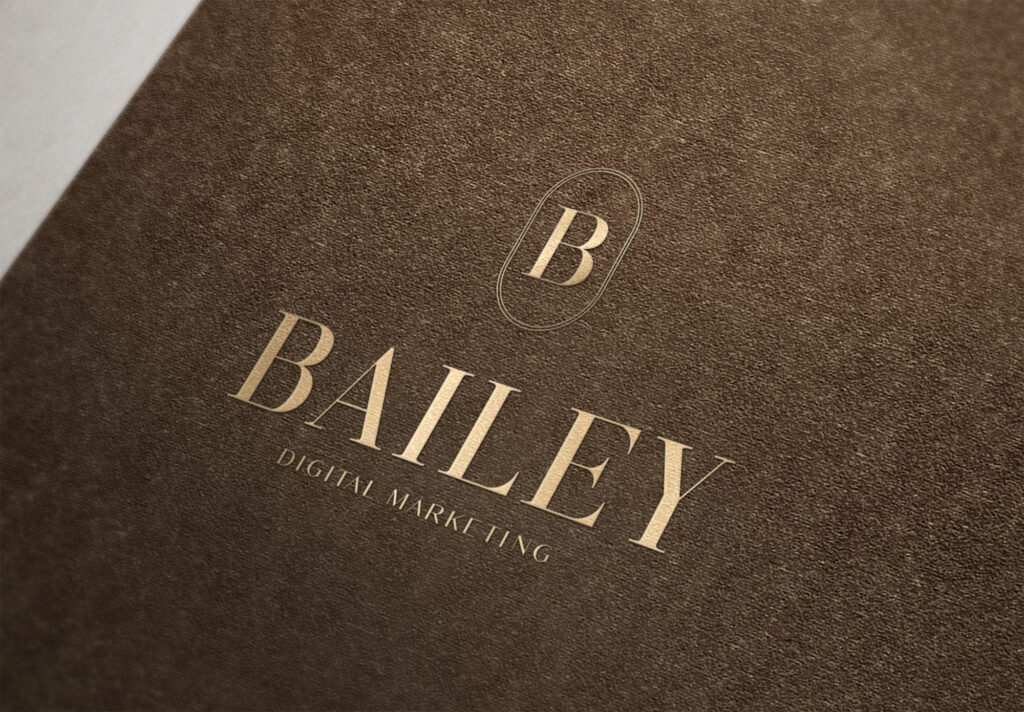In today’s dynamic and competitive landscape of business, establishing a strong brand is not just a luxury but a strategic imperative. Whether you’re a start-up or a well-established enterprise, investing in branding is essential for long-term success and sustainability. Here are ten reasons why you owe it to your business to invest in strategic branding:
1. Branding Captures the Attention of Your Target Audience
You only have half a second to make an impression on someone who has never seen your brand before. In that amount of time, you either capture their attention by standing out, or you miss them this time around. If you think about that – we have 172,800 of those half seconds in 24 hours, competing with countless other brands that are also trying to capture the attention of potential customers and clients… A well-crafted brand gets the attention – even just for half a second. It creates a positive and memorable first impression. It sets the tone for the entire customer experience and can significantly influence purchasing decisions. Part of branding is knowing whose attention you are trying to capture, and intentionally developing a brand around who you are trying to reach. This way, even in the 172,800 half seconds they have during the day – one was spent with your brand, and that’s where it starts.
2. Branding Allows You to Stand Out Amongst Competition
Did you know that the average American sees 10,000 ads per day? That is about 10,000 brands that are competing in the same space as you are. Here’s the thing – your competition is not just other businesses in your industry. In a digital world where we’re all competing for time, only the strongest and most memorable brands win. The market is saturated with options, and brands trying to pull attention from mindless scrolling online. Standing out is paramount. Your brand is the unique identifier that sets you apart from other brands. Effective branding communicates to your audience who you are. It builds your online presence, allowing users to resonate with you and wanting to learn more about your business because of the way you show up online or through traditional marketing channels.
3. Branding Builds Trust Among Your Audience
Trust is the cornerstone of any successful business relationship. A consistent and authentic brand builds trust with consumers. Showing up consistently as your brand, no matter where they see you creates a sense of trust among your audience. When people recognize and trust your brand, they are more likely to choose it and become loyal customers. Trust also plays a crucial role in word-of-mouth marketing, as satisfied customers become brand advocates. Consistent and intentional branding also demonstrates to audiences that you’ve invested in who you are, and that you are exactly that. When your branding looks great, it’s typically a reflection of the type of care you take in the work your business does too.
4. Branding Creates an Emotional Connection and Customer Loyalty
Humans are emotional beings, and successful brands tap into this aspect. A brand that resonates emotionally with its audience creates a strong connection. This goes beyond your logo, typography and color palette. This level of branding looks at who you are and the difference your brand makes for those who work with you. Whether it’s through storytelling, shared values, or a unique brand personality, fostering an emotional bond with customers leads to long-term loyalty. Telling not only your brand’s story, but the story of your customers strengthens who you are as a brand and begins the relationship you wish to have with your customers.
5. Branding Creates Recognition and Recall
In a cluttered marketplace, a memorable brand is a competitive advantage. A well-designed and consistent brand is easily recognizable. This recognition not only attracts new customers but also reinforces the loyalty of existing ones. In the past, the rule of thumb was that someone must see your brand seven times for it to start resonating with them. Today, that number has increased to 12, and the more frequently they see it, the better and more quickly it will start to resonate with them. When you show up consistently as your brand – using the same logo, colors, typography, phrases, and brand images, it’s easy for people to recognize and recall who you are. You become familiar to them. People are more likely to remember and recommend a brand they can easily identify.
6. Branding Creates a Guide for Who You Are and How You Show Up
A brand is not just a logo or a tagline; it’s a comprehensive identity system. Your brand book is the identity system that outlines who your brand is and how it shows up through marketing, customer interactions, as an employer and all of the other interactions you can think of. Consistency in messaging, visual elements, and customer experience across various touchpoints is crucial. Businesses often find themselves in moments where they are met with what they should do, what they should say, how they should communicate, and your brand guide is the most important document to refer to as a reminder of who your brand is. Remember – your brand is an identity outside of who the owners of the business are. It has its own values, imagery, audiences and goals and should be treated as its own identity. If done correctly, your branding takes all aspects of the business into account, so you can trust that the brand stands for all the things that will make your business successful.
7. Branding Positions Your Business in the Market and Creates Financial Value
A strong brand is an intangible asset that can have tangible financial value. It contributes to a company’s overall valuation and can make it more attractive to investors, partners, or potential buyers. Additionally, effective branding helps position a business in the market, allowing it to command premium prices and compete more effectively. Your brand should communicate whether you are more cost-effective or more of a luxury brand without ever having to say it in your marketing. A more child-like, colorful font typically communicates more cost-effectiveness while more minimalistic, elegant branding communicates luxury which is typically more expensive.
8. Your Brand Creates Employee Morale and Productivity
Your brand is not only for external audiences but also for your internal team. A well-defined brand fosters a sense of pride and identity among employees. When employees believe in and are proud to represent the brand, it positively impacts morale, motivation, and overall productivity. Your brand will even attract the type of talent you want simply by showing up as who you are. The same values and beliefs used to create your brand should be guiding principles for the culture you create internally and how you treat the employees that make your business successful.
9. Branding Allows for Effective Adaptability and Growth
Markets evolve, consumer preferences change and businesses need to adapt. A flexible and well-thought-out brand can withstand these changes and adapt to new trends without losing its core identity. It provides a solid foundation for business growth, allowing for expansions into new markets and the introduction of new products or services, all while staying true to who the brand is. Without a brand strategy, many businesses go with the wind – adapting and changing too often that they become unrecognizable which negatively impacts trust and credibility in the market. The best way for businesses to grow is to do it while staying true to who they are which is outlined in their branding.
10. Branding Goes Beyond Your Business
Branding is an extremely powerful gift you can give to your business, but also a gift you can give to others. When you take the time to invest in a strong brand – you don’t necessarily know the potential of how far it can reach, how it can make someone’s day, create relationships with clients and develop experiences that people remember forever. Think of your favorite brands – maybe it’s a hotel chain where you have your best childhood memories, maybe it’s a clothing brand that you were gifted for Christmas one year by a loved one, maybe it’s a candle that your grandmother burnt in her house that reminds you of her to this day. When your business creates a brand, it’s not for the long-term success you will achieve, it’s for the experiences the brand will go out and create for the world – the ones you may never become aware of, but it all ties back to the brand you took the time to create.






